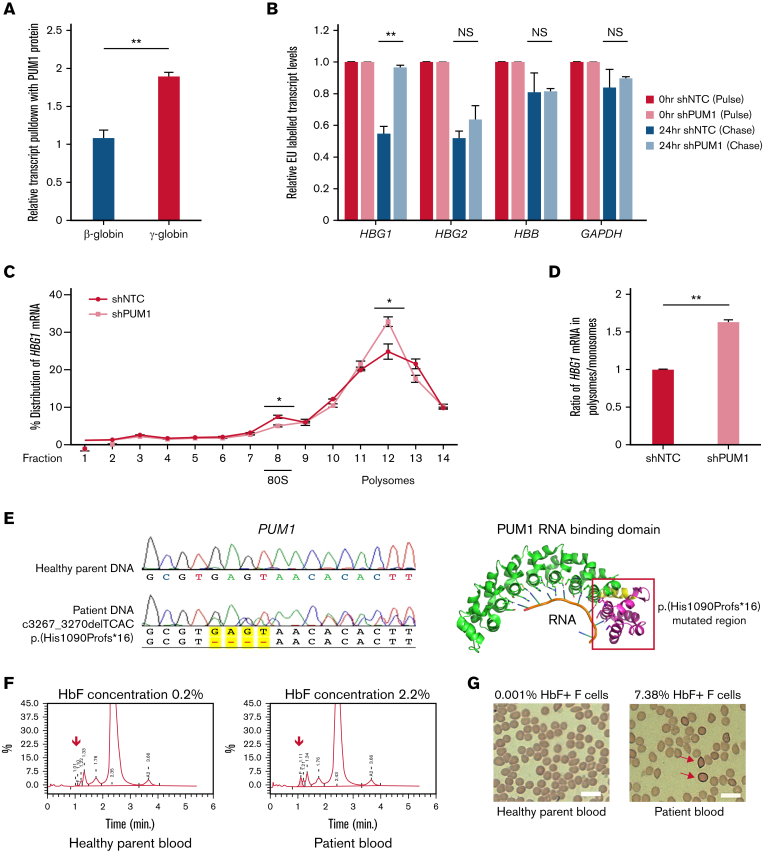
The fetal-to-adult hemoglobin switching at about the time of birth involves a shift in expression from γ-globin to β-globin in erythroid cells. Effective re-expression of fetal γ-globin can ameliorate sickle cell anemia and β-thalassemia. Despite the physiological and clinical relevance of this switch, its posttranscriptional regulation is poorly understood. Here, we identify Pumilo 1 (PUM1), an RNA-binding protein with no previously reported functions in erythropoiesis, as a direct posttranscriptional regulator of β-globin switching. PUM1, whose expression is regulated by the erythroid master transcription factor erythroid Krüppel-like factor (EKLF/KLF1), peaks during erythroid differentiation, binds γ-globin messenger RNA (mRNA), and reduces γ-globin (HBG1) mRNA stability and translational efficiency, which culminates in reduced γ-globin protein levels. Knockdown of PUM1 leads to a robust increase in fetal hemoglobin (∼22% HbF) without affecting β-globin levels in human erythroid cells. Importantly, targeting PUM1 does not limit the progression of erythropoiesis, which provides a potentially safe and effective treatment strategy for sickle cell anemia and β-thalassemia. In support of this idea, we report elevated levels of HbF in the absence of anemia in an individual with a novel heterozygous PUM1 mutation in the RNA-binding domain (p.(His1090Profs∗16); c.3267_3270delTCAC), which suggests that PUM1-mediated posttranscriptional regulation is a critical player during human hemoglobin switching.
U54DK106857 supported the purchase of CD34+ cells from Yale Cooperative Center of Excellence in Hematology.



